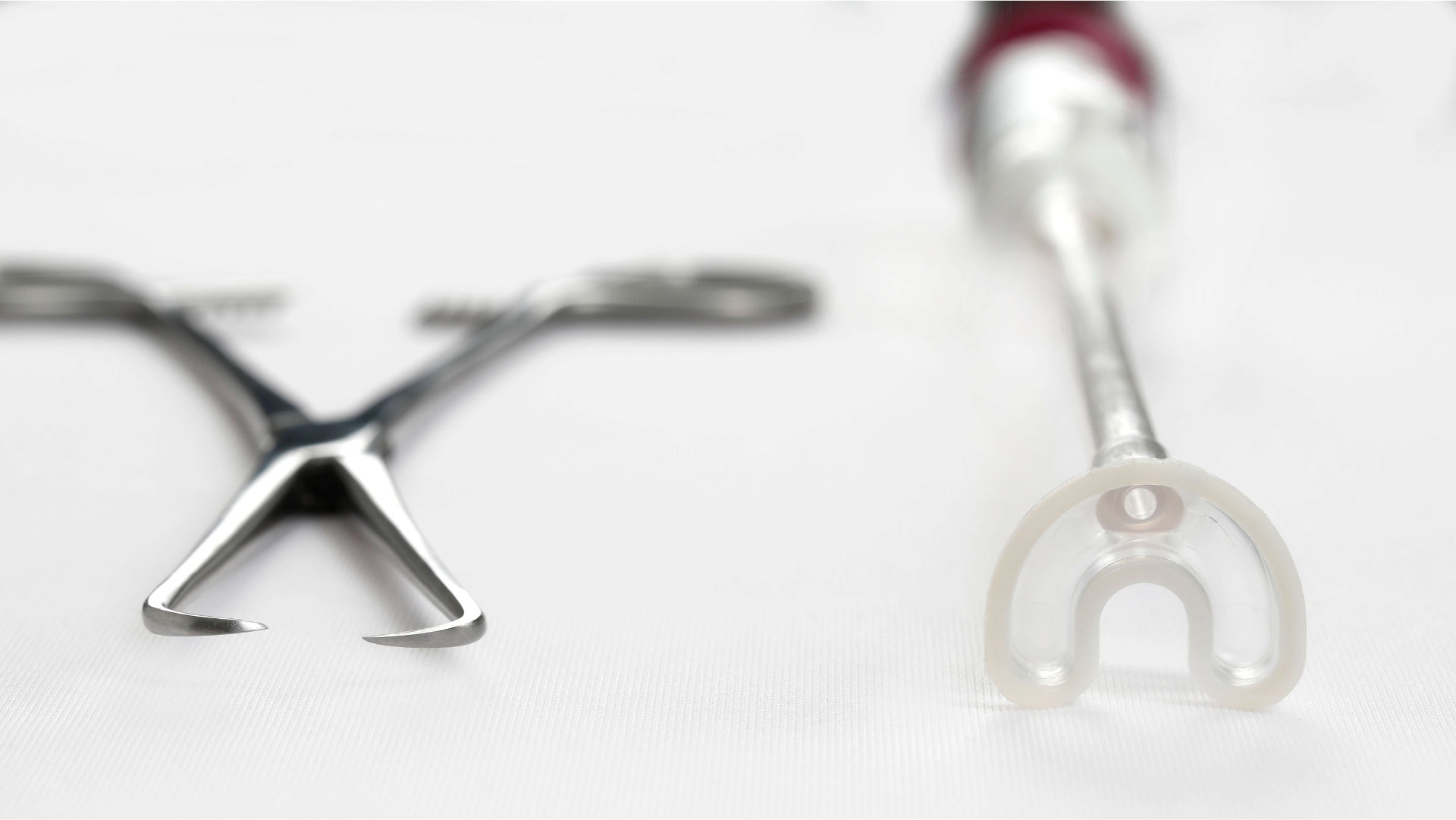For more than a century, most women have suffered during gynecological procedures performed with Pozzi forceps. Equipped with claws, these forceps too often cause bleeding, sharp pain and the risk of tearing flesh. That's why Aspivix, a Vaud-based start-up, has developed an alternative that respects women's intimacy and is less painful, based on the suction cup principle.
The story begins with David Finci, a gynecologist in Geneva, who regularly uses Pozzi's forceps in his practice. However, he is uncomfortable with the tool, which causes pain and bleeding in most of his patients. David spoke to his brother, Julien Finci, an engineer who studied at the EPFL. He came up with the idea of replacing the forceps with a suction cup. At the time, Julien was working for an American company where he met Mathieu Horras, who joined the venture to take charge of marketing and finance. David, Julien and Mathieu created Aspivix. "Of course, it didn't all happen overnight: there were challenges to overcome, and a lot of thought went into it," notes Mathieu Horras, co-founder and CEO of Aspivix.
The hardest part of replacing the Pozzi forceps was inventing a tool that was just as easy to use. Everyone knows how to use forceps," explains Mathieu Horras, "so our principle is deliberately simple, with the patient's well-being always in mind." Aspivix's innovation consists of a suction cup that generates a vacuum, as with a syringe, and when the vacuum is released, the suction cup adheres to the cervix. It's as easy to use as the current forceps, causes little pain and respects women's intimacy.
It was also clear to the three co-founders that they needed to maintain the technological edge of their product. It was Innovaud who advised them to contact Alliance to develop a second generation of their tool. They worked with Élise Gortchacow, innovation mentor in innovation. "Élise helped us identify our development needs, as well as the financial assistance we could obtain. We decided to opt for a Eureka project. Élise's help was invaluable, as these are complicated applications to put together and write, with many constraints," explains Mathieu.
Aspivix also benefited from Platinn coaching to meet their second challenge: organizing the supply chain for their product. This is where Thomas Maeier helped them identify the right partners and define the right selection criteria. Currently in the user-testing phase, their product has the potential to change the lives of many women. In January 2023, they obtained marketing authorization in the United States, and are still awaiting approval for Europe. On March 11, their research was published in the US journal Contraception.
"We're fortunate that our product solves a real problem for thousands, if not millions, of patients and gynecologists. But we're also a young start-up and we wouldn't be here without the help of Alliance, Platinn and the other organizations that have supported us."
Mathieu Horras

